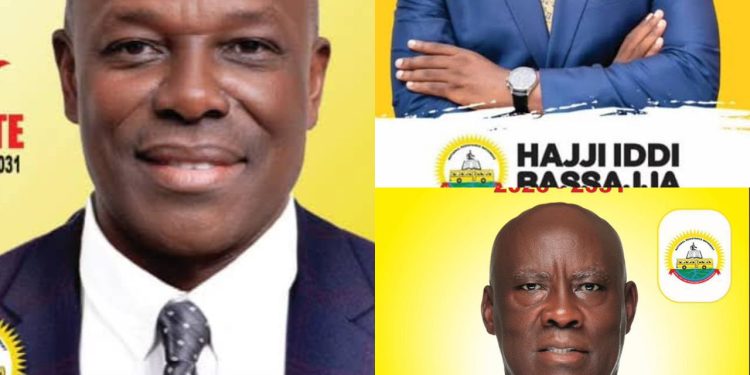Bushenyi District, once known for its vibrant civic engagement and competitive leadership, is now facing a quiet but dangerous takeover—one not by force, but by family.
At the center of this creeping political monopoly is the Bassajabalaba family, whose growing dominance over the district’s key political positions is raising alarm among concerned citizens.
Hajji Hassan Bassajabalaba, a longtime political figure, currently holds the influential position of NRM District Chairman. His son, Hajji Iddi Bassajabalaba, is now actively eyeing the parliamentary seat for Bushenyi–Ishaka Municipality.
Meanwhile, his brother, Jafari Bassajabalaba, serves as the LC V Chairman of the district. This tight grip on political leadership by one family is not only unprecedented—it is deeply worrying.
In any democratic society, leadership is meant to be a shared responsibility, a contest of ideas, vision, and service. It should reflect the diversity of thought and the inclusive spirit of the electorate. When that leadership becomes confined to a single bloodline, it ceases to serve the public and begins to serve private interests. What is unfolding in Bushenyi is not just a family’s ambition—it is the slow erosion of democratic space.
Such a concentration of power fosters a culture of exclusion. Young leaders, professionals, and citizens from other families or communities find themselves blocked from participating meaningfully in politics. With the same family pulling the strings at party, district, and parliamentary levels, it becomes nearly impossible for alternative voices to be heard or for fresh ideas to thrive. Elections risk becoming ceremonial rather than competitive.
Moreover, when decision-making is centralized in one household, transparency and accountability suffer. Impunity flourishes when those in power answer only to their kin, not to the people they are meant to serve. It sets a dangerous precedent where public offices become extensions of family business rather than platforms for public service.
The danger is not just political—it is generational. If left unchallenged, this trend could entrench a dynastic model of governance that outlives its architects, robbing future generations of the freedom to choose their leaders. It undermines the very essence of democracy: that leadership belongs to the people, not to a privileged few.
Bushenyi deserves better. The district is home to a wealth of talent, intellect, and civic-minded individuals capable of leading with integrity and vision. But these voices will remain suppressed as long as the reins of power are held by one family.
This is not a personal attack—it is a democratic concern. A single family dominating political life is a red flag that citizens must not ignore. It is a wake-up call to speak out, to demand fairness, and to protect the democratic space for all.
If democracy is to survive in Bushenyi, it must be reclaimed by the people. Leadership must be earned, not inherited. The time to act is now—before our silence cements a legacy of political captivity disguised as leadership.





